Rajni Bakshi
Mohammed Yunus, the Bangladeshi Nobel Laureate famous for his work in micro-finance, was once invited to speak at the St Paul's cathedral in London.
Asked for his views on the future of capitalism, Yunus spoke hopefully about a transformation.
What we now know as 'capitalism', said Yunus, is a half-done story. Its institutions and mechanisms are one-dimensional, they respond only to the motive of money profit.
...
Can 'Occupy London' transform the financial world?
Image: Volume of protestors has been growing.But there is much more to human beings and thus markets and business. Just as there is a money-dominated stock exchange on one side of this cathedral, said Yunus, there could be different kind of exchange on the other side: "Where people will come to invest money to do good to other people and there will be rating agencies to find out which other organizations, which other entrepreneurs, were doing good to people."
Yunus's vision has not yet come to pass but the essence of this dream seems to energize the hundreds who make up the Occupy London Stock Exchange protest which began last week.
...
Can 'Occupy London' transform the financial world?
Image: The cost of bailing out the financial system is 1.3 trillion.The encampment of protestors started out in the square at the front of the towering St Paul's cathedral, one of London's best loved landmarks.
Since then the volume of protestors has been steadily growing and their encampment is now encircling the cathedral.
Like their American counterparts who have been occupying a park near Wall Street for a month, the London action is a protest against the gross distortions created by banks and mismanaged financial markets.
Here are the 'key facts' listed on the protestors' web page:
i) The Bank of England has estimated that the total cost of bailing out the financial system is 1.3 trillion pounds.
That is more than 10 times the budget of UK's National Health Service.
...
Can 'Occupy London' transform the financial world?
Image: The top 10 per cent of Britons now have 100 times the wealth of the bottom 10 per cent.ii) Three years after the meltdown the British Government continues to subsidise 'too big to fail banks' banks.
iii) Meanwhile, the government has announced austerity measures to the tune of 83 billion pounds. This will curtail social services and cause suffering to low-income families as well as pensioners.
iv) Over the last two years the British economy has lost two million jobs and an estimated 21.3 per cent people who are between 16 to 25 year olds are currently out of work.
v) The top 10 per cent of Britons now have 100 times the wealth of the bottom 10 per cent.
...
Can 'Occupy London' transform the financial world?
Image: An activists sees a pattern emerging in such protests.Anothy Barnett, founder of the openDemocracy website, sees a pattern emerging in such protests across Europe.
The movement to occupy public squares has a hopeful energy where the protestors seem to feel that they are starting something new that could win.
"I know there is a lot of skepticism about the occupation's melange of demands and determinedly unpolitical approach" Barnett wrote after visiting the Occupy London protest.
"I think it is wrong to see what is happening from the optic of traditional politics. The peaceful encampment legitimizes a claim to stay and if they stay then there will be a permanent anti-city in the City appealing to a new general interest."
...
Can 'Occupy London' transform the financial world?
Image: More than 200 tents have been pitched.Peter Vaughan, a 24 year old volunteer at the protest site, was quoted by the Guardian as saying: "We plan to stay until we see a change in the direction of the government and its relationship with the financial sector."
Some of the protestors have vowed to hold their ground till Christmas. But there is also talk of extending the protest till next summer when London is due to host the Olympic Games.
With more than 200 tents already pitched around the cathedral, Occupy London is already looking like a little township - it is reported to have a bookshop, information centre and even a prayer room.
...
Can 'Occupy London' transform the financial world?
Image: An activist has compared London protests to Egyptian revolution.The establishment of St Paul's were initially supportive but have now come under pressure after the City of London authorities shut the cathedral down because of health and safety concerns.
This means a substantial financial loss to the cathedral, which has ticket sales of about 16,000 pounds a day.
One of the highlights for the protestors last week was a visit from the Egyptian activist Nawal El Saadawi.
A report in the Guardian quoted El Saadawi as comparing the London event to the occupation of Cairo's Tahrir Square: "All over the world it's a global revolution, we must fight together."
...
Can 'Occupy London' transform the financial world?
Image: The movement can force changes in how the world does business.If this momentum continues to build, governments and those who run financial markets will have to find ways of tangibly demonstrating that they can and will be more accountable.
This might possibly expand space for the kind of transformation Yunus spoke about.
We might then see the emergence of new ways to foster more socially responsible businesses.

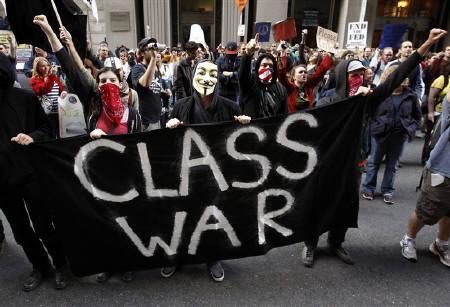
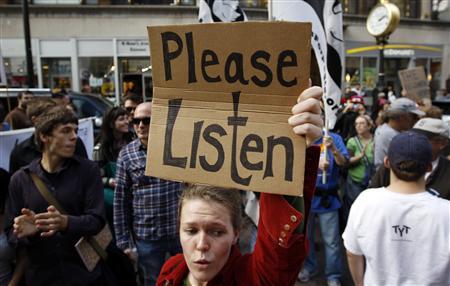
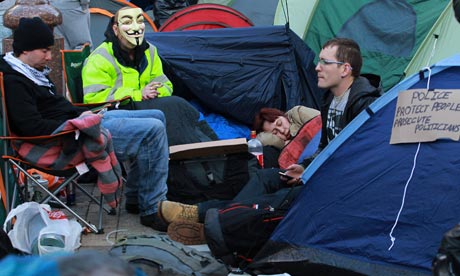
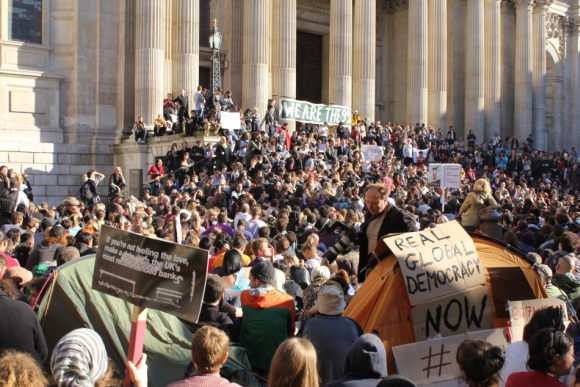
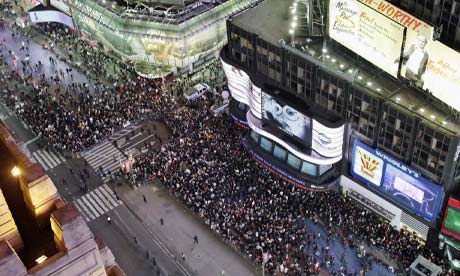
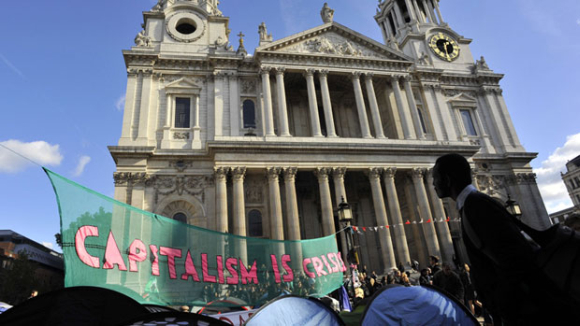
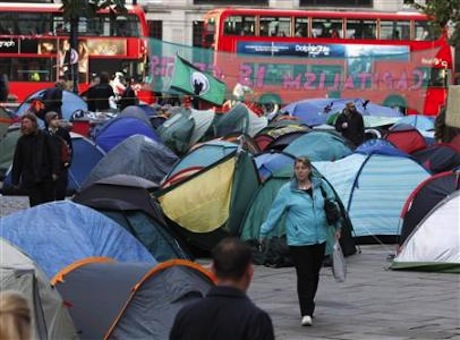
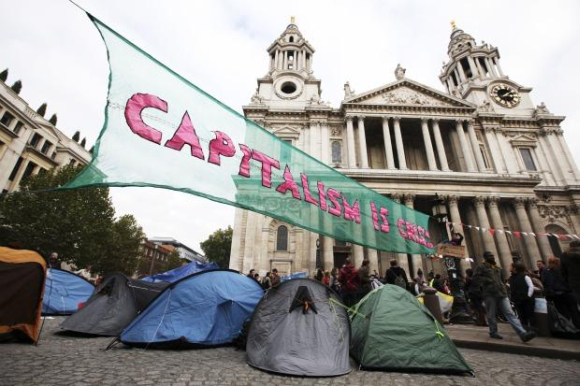
article